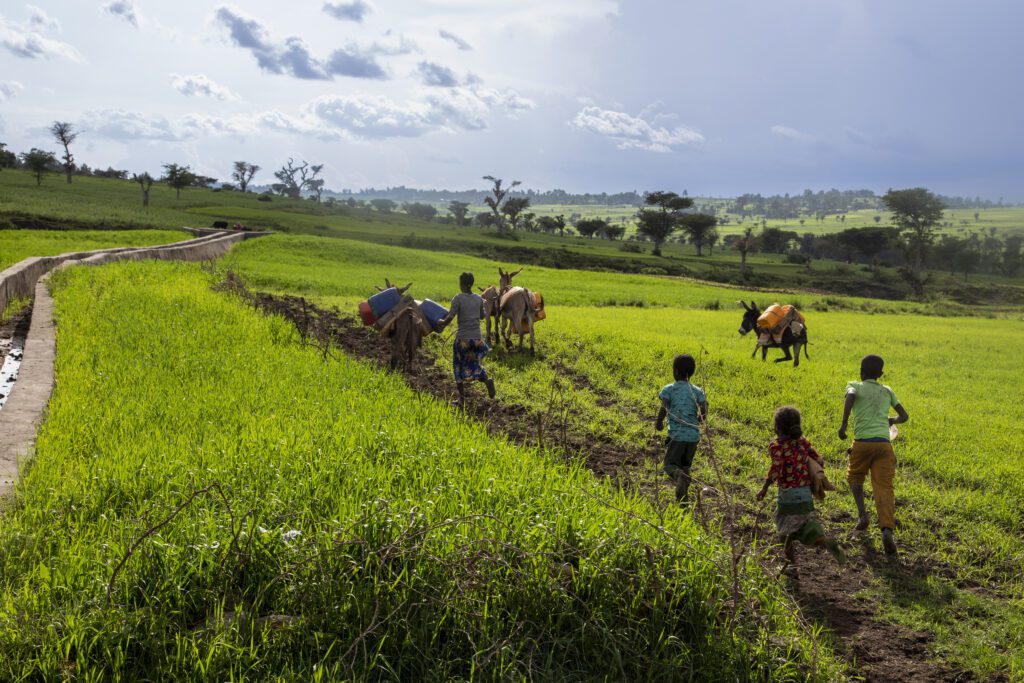Factors Influencing Wheat Seed Source Decisions Among Smallholder Farmers in Ethiopia’s Gedeo Zone
Understanding the intricacies of agricultural practices is crucial for enhancing productivity, especially in developing regions. A recent study delves into the factors that shape wheat seed source decisions among smallholder farmers in Ethiopia’s Gedeo Zone. This region is known for its rich agricultural traditions but also faces significant challenges in terms of seed selection and utilization.
Importance of Wheat in Ethiopia
Wheat is a staple crop that plays a vital role in the food security and economic stability of Ethiopia. As the country strives to achieve self-sufficiency in grain production, understanding how farmers choose their wheat seed sources can provide insights into improving overall agricultural outcomes.
Key Factors Influencing Seed Source Decisions
1. Access to Information
Access to reliable information greatly influences seed sourcing. Farmers who have access to agricultural extension services, educational resources, and farmer networks are more likely to make informed decisions on the types of seeds to plant. These resources help in identifying high-yield and disease-resistant varieties, which can significantly impact production levels.
2. Seed Quality and Variety
The quality of seed is paramount in ensuring a successful crop yield. Farmers tend to prefer seeds that are reliable, tested, and proven to perform well in local conditions. Varietals that are drought-resistant and pest-resistant are particularly sought after, given the variable climate conditions in the Gedeo Zone.
3. Cost and Availability
Cost remains a significant barrier for many smallholder farmers. Seeds must be affordable to encourage broader adoption. Additionally, the availability of seeds in local markets can directly influence choices, as farmers are less likely to pursue options that require long-distance travel or additional costs.
4. Cultural Practices and Traditions
Agricultural traditions play an essential role in the seed selection process. Many farmers in the Gedeo Zone rely on traditional seeds passed down through generations due to their familiarity and perceived resilience. The integration of traditional and modern practices is a balancing act that many farmers navigate.
The Role of Government and NGOs
Interventions from government bodies and non-governmental organizations (NGOs) can help streamline seed sourcing by improving infrastructure, providing superior seed varieties, and enhancing education. Such collaborations can work towards creating a more reliable seed system that benefits smallholder farmers.
Conclusion: A Path Forward
Enhancing the decision-making process regarding wheat seed sources for smallholder farmers is critical to achieving food security in Ethiopia’s Gedeo Zone. By focusing on improving access to information, ensuring the quality and availability of seeds, and respecting cultural practices, stakeholders can foster a more productive agricultural environment.
For those interested in further details, the full study is available for deeper insights. Understanding these dynamics is crucial for anyone involved in agricultural development, especially in regions that are increasingly susceptible to challenges posed by climate change and market fluctuations.
By leveraging these insights, agricultural practices in Ethiopia can be transformed, ensuring that smallholder farmers are better equipped to face the challenges ahead.
For more information on agricultural practices and seed sourcing in Ethiopia, consider visiting Food and Agriculture Organization and CGIAR.
